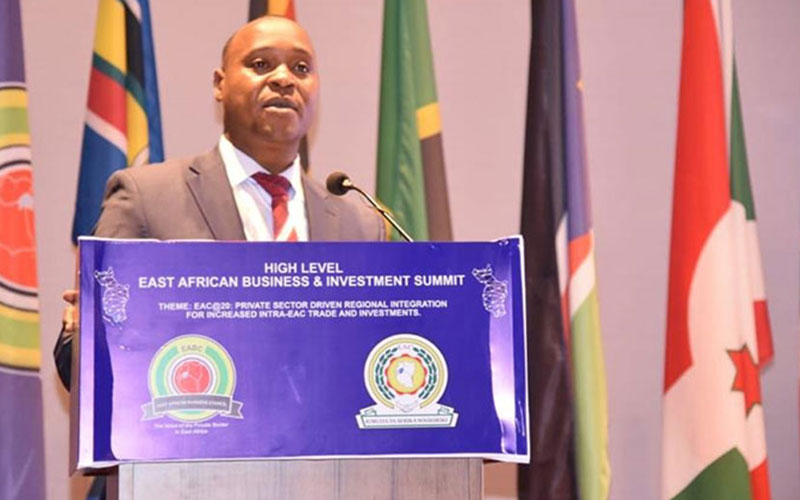Inside raft of proposals by EABC ahead of the unveiling of budgets by partner states
By Joel Muinde, June 4, 2020Ahead of the upcoming unveiling of budgets by Kenya, Tanzania, Uganda and Rwanda on June 11, the East African private sector has proposed a raft of measures to alleviate the impact of COVID-19 on businesses and East Africans.
In a statement to newsrooms on June 4, the Chief Executive Officer of the East African Business Council (EABC), Dr. Peter Mathuki, already noted that East Africa Community (EAC) partner states have reviewed their targeted economic growth downward by nearly 50 percent.
EAC partner states except for Burundi and South Sudan usually unveil their budgets on the same day in June every year after holding pre-budget consultations of Finance and Economic Planning ministers.
“The expectation of the EAC private sector is that the EAC budgets for 2020/21 will contain economic stimulus packages that will mitigate the impact of COVID-19 pandemic and stimulate economic growth and recovery,” said Dr. Mathuki.
To that end, the EABC proposed not only fiscal and monetary measures but also changes to domestic taxes.
On fiscal and monetary measures, Dr. Mathuki said that the EAC private sector’s budget proposals include extending duty remissions to inputs that are not available in the region and applying stays of applications as well as higher tariffs on products facing unfair competition from cheap imports.
Some of the inputs which manufacturers are seeking for duty remission are sugar for industrial use, raw materials for beverages and food, materials for the manufacture of baby diapers, inputs for energy-saving stoves as well as inputs for the manufacture of textiles, leather products, and plastics.
The goods EABC wants applied stay of applications include ceramic tiles, Portland cement, fishing nets and iron and steel products..
Zero rate essential goods
To sustain businesses amid the Covid-19 pandemic period, EABC proposes a reduction of value-added tax (VAT) rate from 18-16 percent to at least 14 percent.
“This will stimulate local consumption of goods and services as well as cushion consumers during the period of COVID-19,” said Dr. Mathukin in the statement released to newsrooms by the EABC.
Further, the EABC also wants zero rate VAT for essential goods.
“Most manufacturers have repurposed their manufacturing to produce products of high demand during COVID-19 pandemic which include personal protective equipment, sanitizers and face-masks. In addition, EAC Governments should set aside enough funds to repay VAT refund claims in order to improve the cash flows for businesses in the EAC region,” said EABC.
Petroleum products
On excise duty, the EAC private sector is urging partner states to refrain from increasing duty on both petroleum products and non-petroleum prodcuts.
“This will control inflation and hence cushion East Africans and businesses from the impact of COVID-19 pandemic.
In line with measures announced by President Uhuru Kenyatta to reduce corporate and pay-as-you-earn taxes, the EABC wants partner states to lower them across the board to at least 25 percent.
Debt relief
The council has also called on EAC governments to negotiate with development partners on debt relief or rescheduling of debt servicing.
“Money saved from debt relief should be used in fighting the virus as well as mitigating the impact of COVID-19 pandemic on EAC economies,” EABC noted.
Also, the private sector council is advocating for the lowering of Central Bank Rate and Cash Reserve Ration to boost liquidity of commercial banks and enable thm lend to businesses.
In addition, the council proposes the setting of a stimulus fund for private-sector borrowers, buying back of government bonds and securities at prevailing market rates.
